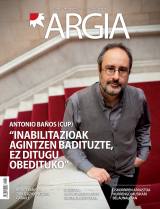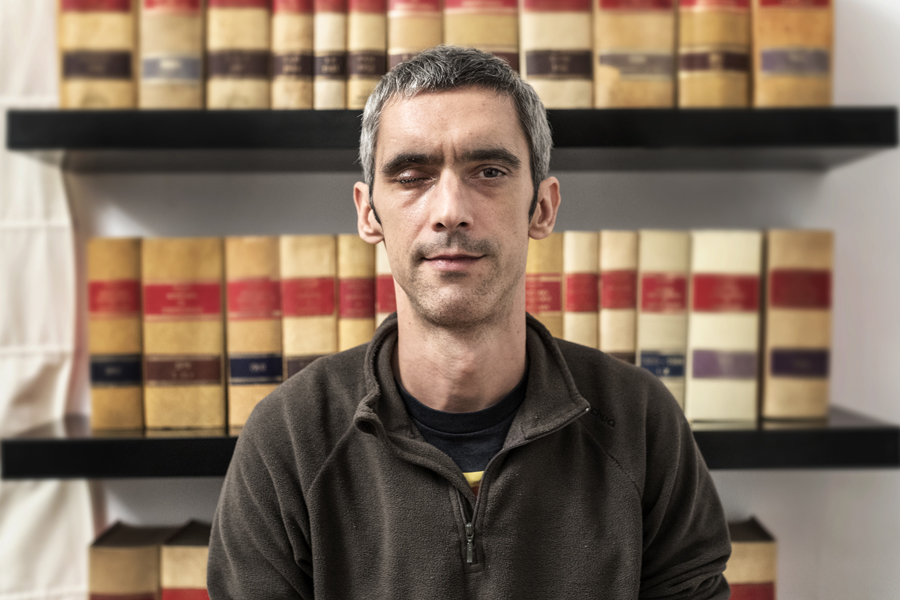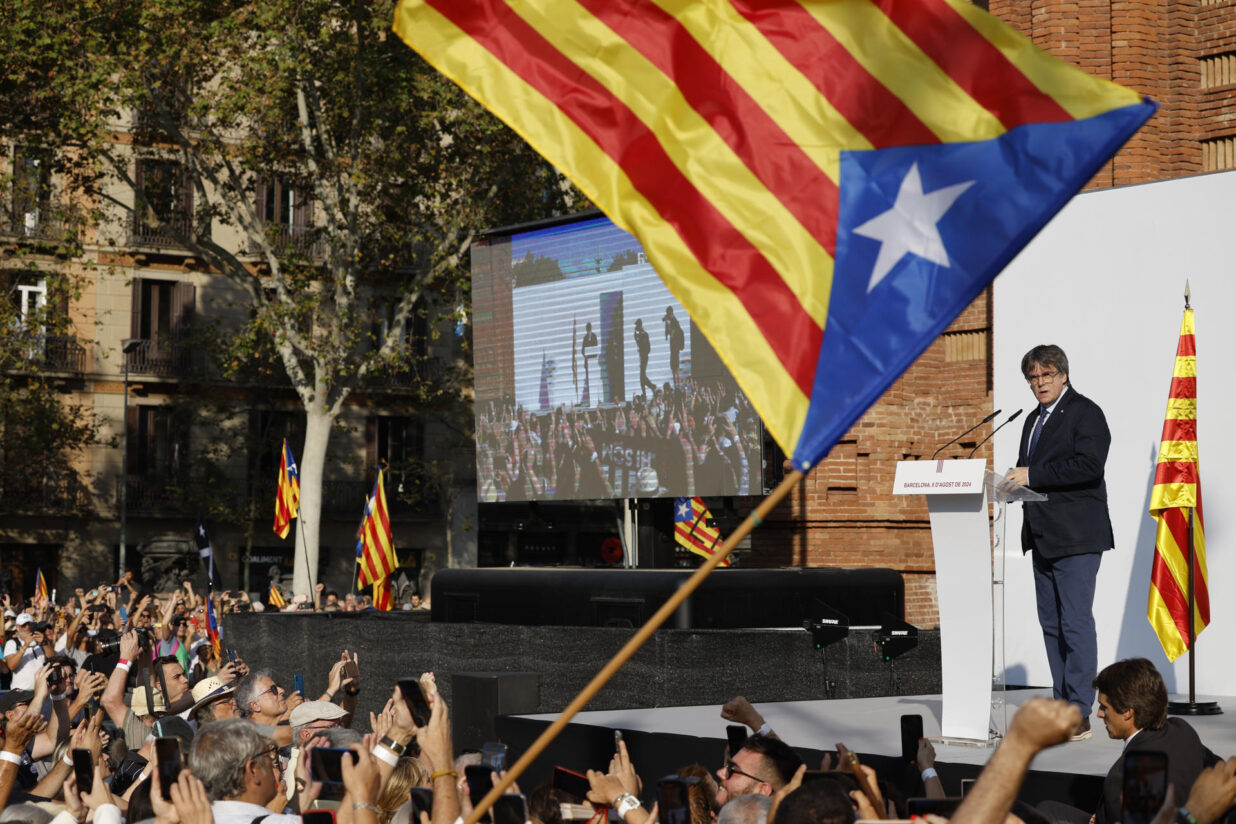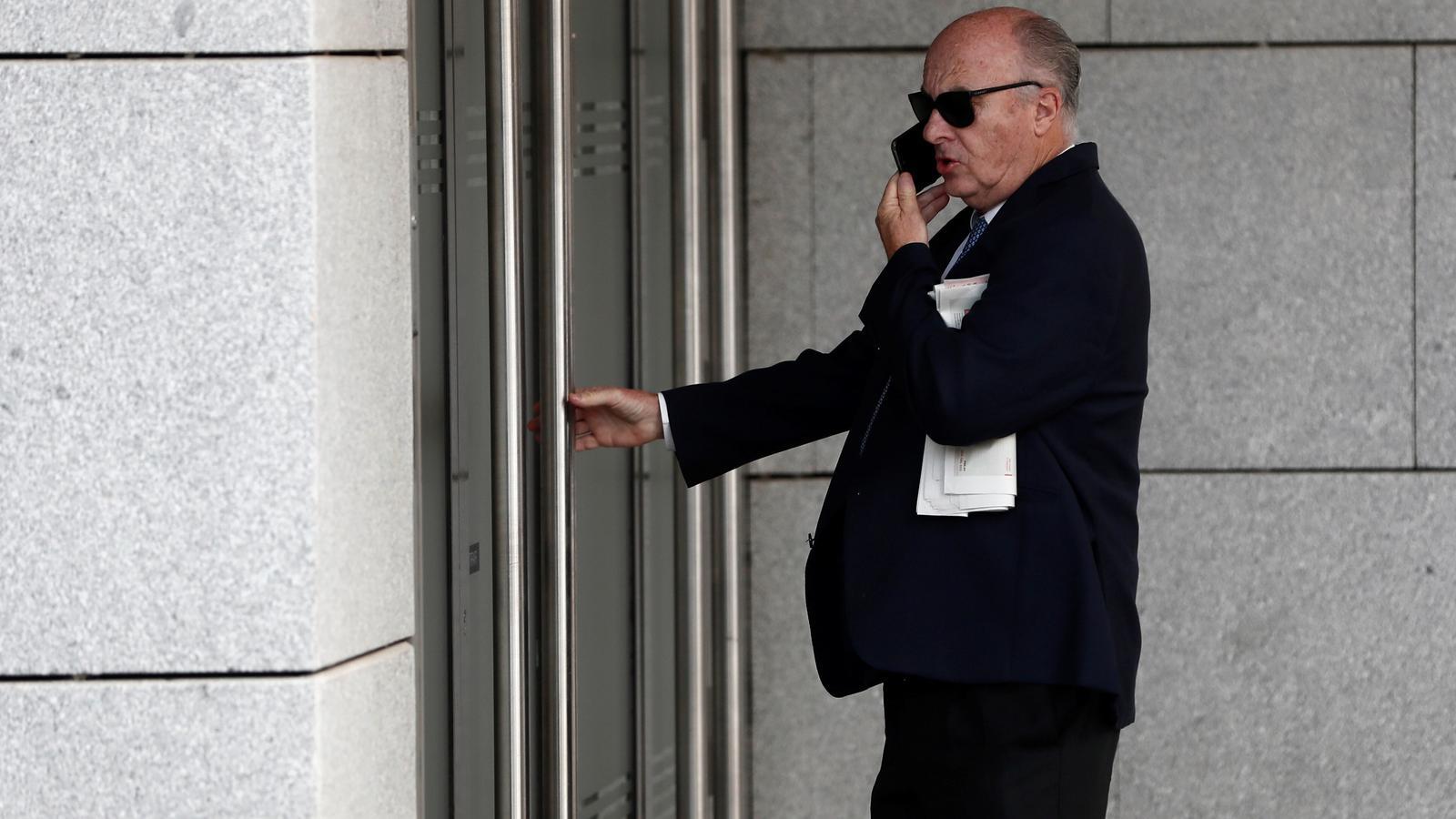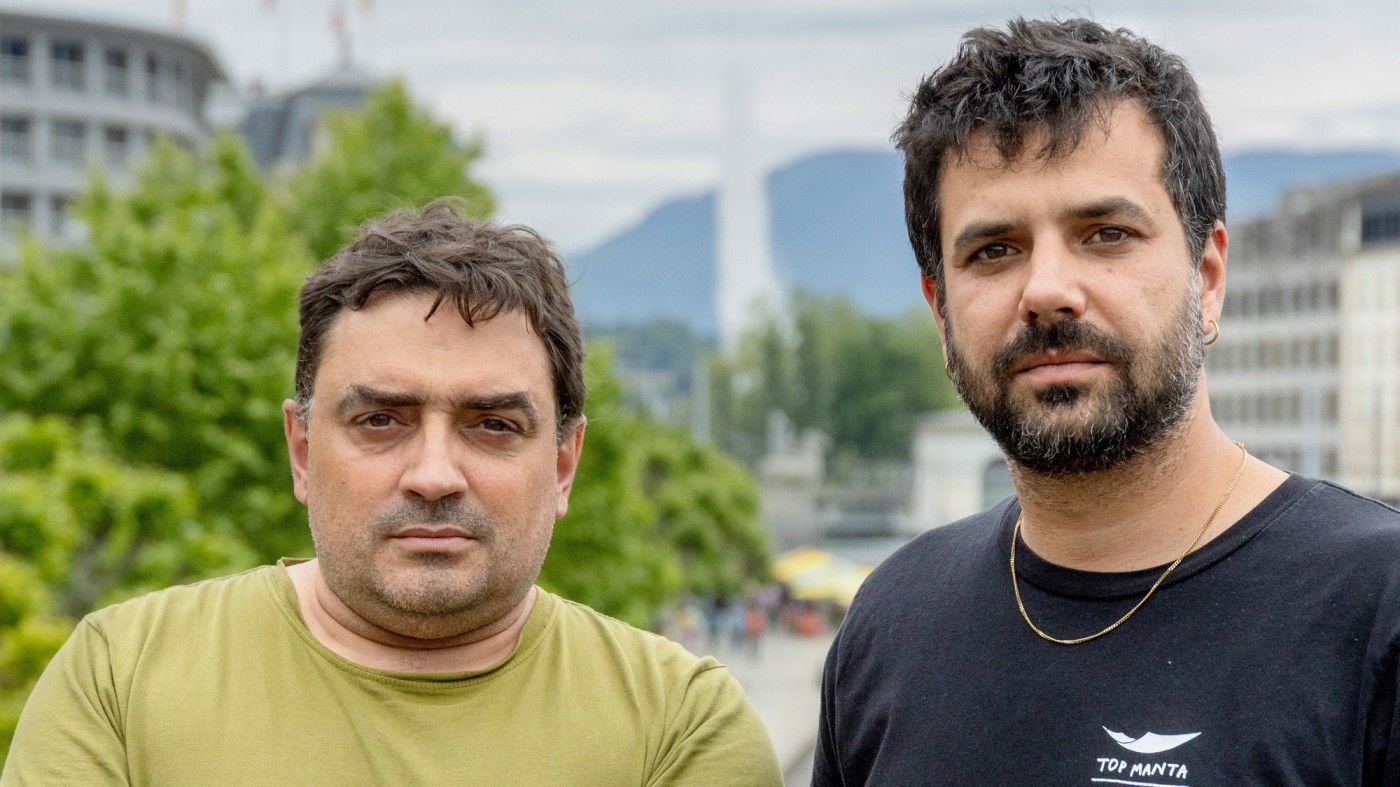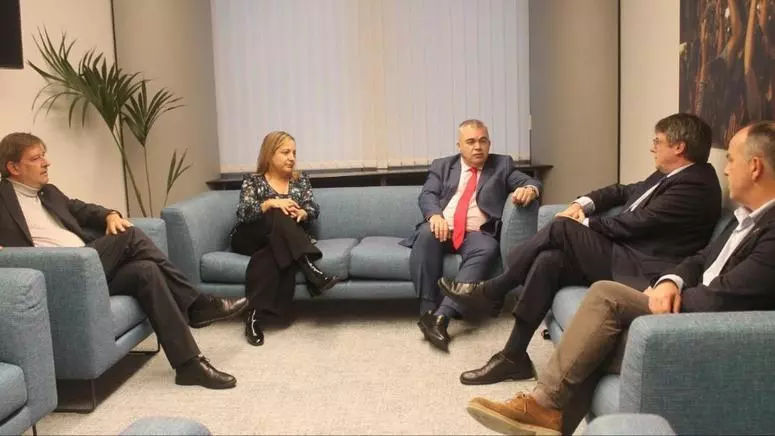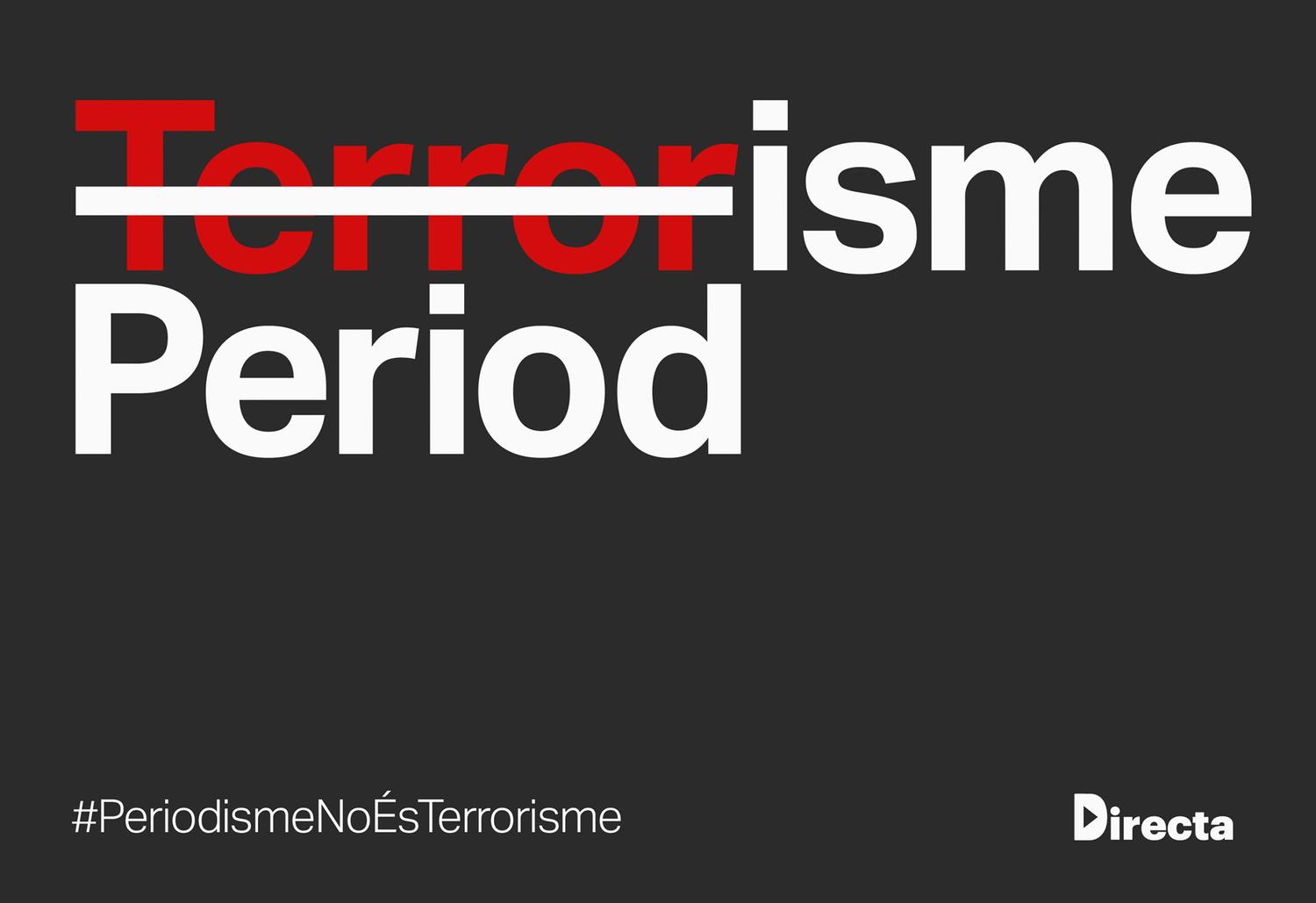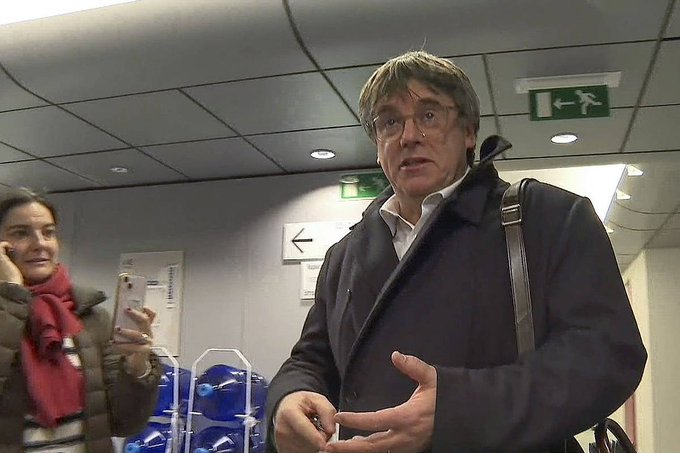“We want to leave the national struggle to make national politics”
- Antonio Baños has been surprised at the most interesting moment that Catalonia has experienced in recent years. Parliament has just adopted a declaration stating its willingness to make an independent republic and to declare that the Spanish Constitutional Court is illegal. However, the Government remains untrained, as candidate Artur Mas has not obtained sufficient support to govern.
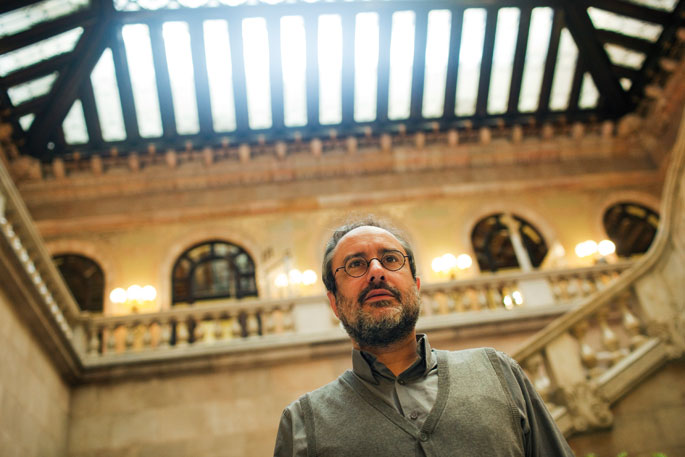
Some have already given their ruling: the elections on 6 March.
Well, they're wrong. There is nothing decided. The 6th of March is a scenario, of course, that can happen, like many other things. But it's not desirable, for anybody. And since it is not desirable, it cannot be taken for granted; on the contrary, we are all trying to avoid it.
Between the investiture of Mas or the end of the process there are many alternatives.
We believe there are alternatives. In addition, we've been stuck in that dichotomy. First, because Convergència Democràtica de Catalunya (CDC), of course, wants its candidate to be president, and then, for different interests. We have always said that between voting as President Mas, as the head of the government that designates the counselors, and the setting for an early election in the form of an apocalypse, there are opportunities, better opportunities, that strengthen independence.
What would be the most suitable for the Cup?
We want a strong government that faces increasingly urgent social challenges and attacks by the Spanish State. This requires a consensus president, a broad government that fully represents the 72 Members from Christian democracy to anti-capitalist rule. If the government leans towards a particular group, it weakens, because the people you have to join are not going to grow. A difficult and slippery exercise must therefore be made in order to find consensus, to keep the 72 Members and the people who voted for them and to extend the independence base. If it goes well, and it will go well, the Government will have the capacity to meet all the challenges that arise.
If the name of Mas, after all, is not anecdotal; in the end, you are willing to elect another CDC president.
We like everything that's alternative to CDC. We clash ideologically and in the daily political struggle with the policies that CDC has been developing in recent years. They say that the Spanish Government has made obligatory policies and they are quite right. But there are others who have done this very well, and they have been projects of privatization of public services, which have been carried out in an ideological manner. We don't like CDC policies. And But it is a symbol, for good and for evil. It is a symbol for many independence people, and some continue to be independentists for Mas. But, at the same time, many people will not become independent until Mas leaves, as it represents the destruction of the Catalan popular classes. What we say is that we do not destroy the symbols, that we overcome them, that we do something else.
 And at a time when people are asking for more transparency than ever, why is that scandal in the negotiations?
And at a time when people are asking for more transparency than ever, why is that scandal in the negotiations?
These kinds of negotiations must be discreet, because they are based on trust. We have said that we are not going to explain what we are talking about, and we are not doing so, and instead there are leaks on all sides, which we do not know to whom to attribute. As there's more trust and discretion, it advances faster, because you can talk more freely, more naturalness. Once it is over, of course, we have to explain everything, and we have to seek the endorsement and ratification of the people of the Cup. We have already said that the decision will be taken in an assembly. But poisonings start differently, making it easier for those who do not want independence to do so.
Statement of 9 November: there are those who attach importance to it, but also those who believe it to be a propaganda measure. To what extent is it important?
It is very decisive, first because I was going to Junts pel yes and to our roadmap, which from the very beginning we had to make it clear that this is not another autonomous legislature, that we were in a nation-building legislature. The extraordinary nature of this legislature. And if you don't say it on the first day, in a clear and determined way, we'd start to think that we're on something else. Important things are said, which will have legal and political consequences, it is not yet another declaration of sovereignty that nobody hears. We have seen that the Constitutional Court has taken this seriously, because it is a very serious thing. And we have also put the spotlight on disobedience in the Constitutional Court, in a terrible and fertile institution that has lost all the reputation it could have, and that has the capacity to generate a state of emergency. The shock is very serious, and we want to underline it.
It will therefore have legal effects; inabilitations are cited.
But if we say that we are not going to listen to the Constitutional Court, and if the Constitutional Court orders injustices, the logic leads us to say that we are not going to obey that mandate. Paradoxical things can also happen: Who will you disable, who have voted yes? What if someone had abstained, would he have been half-inexperienced? We will see what they do, the Constitutional Court always surprises us. We will respond according to what they do.
Has that statement strengthened the conservative forces in Madrid?
We do not want to make a Catalan republic in Madrid for pp to win. On the contrary, we are concerned about the progressive forces in Spain and the ordinary people, we do not wish them the government of the PP at all. And we think, on the contrary, that these acts of disobedience, empowerment, sovereignty of Catalonia should bring the Spaniards, even now they are going to vote, the desire to transform the regime of 78. It can be done with the mobilizations of citizens, with the empowerment and with the conviction that institutions are sovereign. If we go well, many people in Spain, contrary to what the Madrid press says, will think that there are ways to enter and transform the institutions.
And without 50% of the votes of the Catalans, could such a path have begun?
If we had had 55% of the votes, the declaration of 9 November would have been otherwise, the claim of the Catalan republic. We can't do that, and we've done something else. It is a declaration: from now on, this chamber, with a majority independence, begins the construction of sovereignty. It's not the same, but it's pretty firm.
In the view of some, the democratic mandate that left the elections on 27 September is the holding of a referendum under Catalan law. I would have a lot more support, to start with.
The order they gave the Cup was not to make a referendum, but we came here to create a republic. To this mandate must be added the one of the voters of the Junts pel yes coalition: to walk towards independence, eighteen months away, without a referendum; to create the necessary structures and, in eighteen months, to start the constituent process. In total, there are 72 Members, who are not now talking about holding a referendum. Of course, a referendum will have to be held at some point. We take this step after the constituent process, in which the Constitution must be ratified, and from there we can say that there is the Catalan Republic. Those who say that the referendum must be achieved now, and within the Spanish state, if they want to revive the year 2014, well. This had already been requested and we were told that it was absolutely impossible.

Let us talk about the Catalan sovereign process. You have achieved the unimaginable: that the plurality of ideologies to which you referred, ranging from Christian democracy to anti-capitalist ideology, should somehow be agreed. Are there people that that consensus can exclude? You said it yourself: “If the people extol consensus, it criminalizes disagreement.”
The culture of the Spanish Transition has praised so much the consensus, which has brought out a voice that did not coincide with the public debate. This has been seen in the national or social issue. I would say that this is not the case, because people who do not believe in independence are very well represented, they are not expelling the Unionists. And those who, although they may be independentists, do not feel represented in this consensus, therefore have the means for political participation. I would not want anyone to stay away, on the contrary, I would like to know where those who disagree are, because the practice of my last years has been to go to them to listen and discuss.
On that path to independence, is there no risk of "the first war and then the revolution"?
We say that one of the two cannot be prioritised. First, independence and then social struggle, or first we leave the crisis and then independence, both of which seem stupid to me, are impossible to materialise. We inherited the legacy of libertarians: they said war and revolution were the same. Independence and social struggle are the same struggle, if we do not have any administrative, political, economic means, how are we going to make social policies within an autonomy? It's impossible, they give us crumbs. And then, if we do independence with a state design identical to Spanish, with non-audited elites, we better stay in Spain. To live the same thing, but with a four-bar banderite. Independence and the transformation of laws, institutions, from a social perspective, are the same process.
You say that the greatest enemy of the Spaniards is the Spanish state. What would be different from the Catalan State of the Catalans?
It should be antagonistic. Spanish has never been a liberal state, it has always been a stain of old regime. It now has a clearly Francoist heritage. The judiciary has never been cleansed, modernized, or democratized, there are courts of emergency, such as the National Court, the National Security Act, the reform of the Constitutional Court. As for the territory, it has never understood its differences. As for income, instead of being a distributer, it aims to take money out of people, and share it among friends. It's not a secular state. It has not considered education and culture important, let alone plurinationality, it has fought against the recognition of Spanish languages, for example, in Europe. We could spend hours saying why the Spanish State is ineffective for all Spaniards.
 Another reason for independence: The dissolution of Convergència i Unión (CIU).
Another reason for independence: The dissolution of Convergència i Unión (CIU).
Unión Democràtica de Catalunya (UDC) is already a non-parliamentary force. CIU, which had 62 Members before the process, now has 30. The more independence, the less the ICU. What is CIU indispensable? CIU votes are essential. There must be a right-wing party, of course, modern, socialchristian, a Catalan right. We want it to be on the right, but it never commands. But in this process the disappearance of CIU is inevitable, and in something else other than reconstruction, which by corruption, being an autonomous party, was designed to go to Madrid to ask for things. This is an aspect related to a customer system. Of course, he didn't invent the system, but autonomism led him to participate. With the Catalan Republic all this is going to end.
The late Joan Fuster said: we want to leave the national struggle soon.
Although in a short time we have removed ethnicism and identitarism from the top, everything is based on language, on history, on folklore. If this process has value, it is because it has led Catalanism to positions that are absolutely political and contemporary. We are all Catalans, we all speak Catalan and we want to defend it, we all like sardanas, etc., but in no case are they at the centre of the political debate. At the center is the design of the State, what a 21st-century State should be, what competencies the territory should have with the central State, how modern, effective, fast justice is done, what basic services are needed, how education, health should be designed and maintained, how to integrate more than a million people who have come in the last era, who speak more than two hundred languages. These are the debates, the debates of the present independence, which are absolutely appropriate and encouraging. We are keen to stop the national struggle, yes, to make national policy, to leave the constant complaint behind and to carry out a policy in line with what we want to do.
There are those who say that the CUP is a classical culture, a classical ideology, not the M15, nor the explosion movement, that is to say.
Just like the children of 2011, I am the son of 2012. Some believe that the M15 is a kind of epiphany that changed everything, I think it was another stage of a cycle of struggle. And in the massive demonstration in Barcelona in 2012, on the contrary, there was an impulse for change. I am not going to discuss the importance of the M15, but if in the end it brings as a conclusion a classic party that carries a general on its lists, a leader that makes gifts to the king, who claims the tide of tricorn, a party that says that it is not left-wing, and if that is the new policy, it seems to me a small transformation. The M15 is not only that, of course, it is much deeper, beyond Podemos, beyond institutionalization. But the Catalan process touches more. And what we're doing, a lot of people look at it hopefully in Spain, because they want to end the 78th regime, and if we go well, they can organize the struggles in a different way.
How have you experienced change: from artistic and autonomous activism, with the music group Los Carradine, to saying that independence is a new rock'and'roll?
Politics is rock'n'roll, but independence is punk. Within that megasenso that was in the 1990s, art was one of the few fields to keep from coinciding. And now you see again that political action is encouraging, spiky, transgressing, it's terrible. Music is the most boring thing there is today. The forces of transformation, ideas, attitudes are back in the field of politics. I go to where the cairn is, I like the march. And when it was absolutely impossible to transform anything into Spanish and Catalan politics, I did other things. But now that politics opens up all the loopholes, you have to be here. And it seems that up until now, in general, the plastic arts, music, Catalan literature are at a time when, unfortunately, political transformation is gathering speed and opening up new positions.
Lau agenteak lesio-delituengatik ikertzen ari dira eta horrek galarazten du 2024ko amnistia aplikatzea. Polizia horietako batek, ustez, gomazko bala batekin begi bat zartatu zion Roger Español kataluniarrari.
Walk from a train station, two friends and a hug. This hug will be frozen until the next meeting. I'll come home, he'll stay there. There, too, will be free the painful feeling that injustice wants us to catch. Jesús Rodríguez (Santa Coloma de Gramenet, 1974) is a journalist,... [+]









